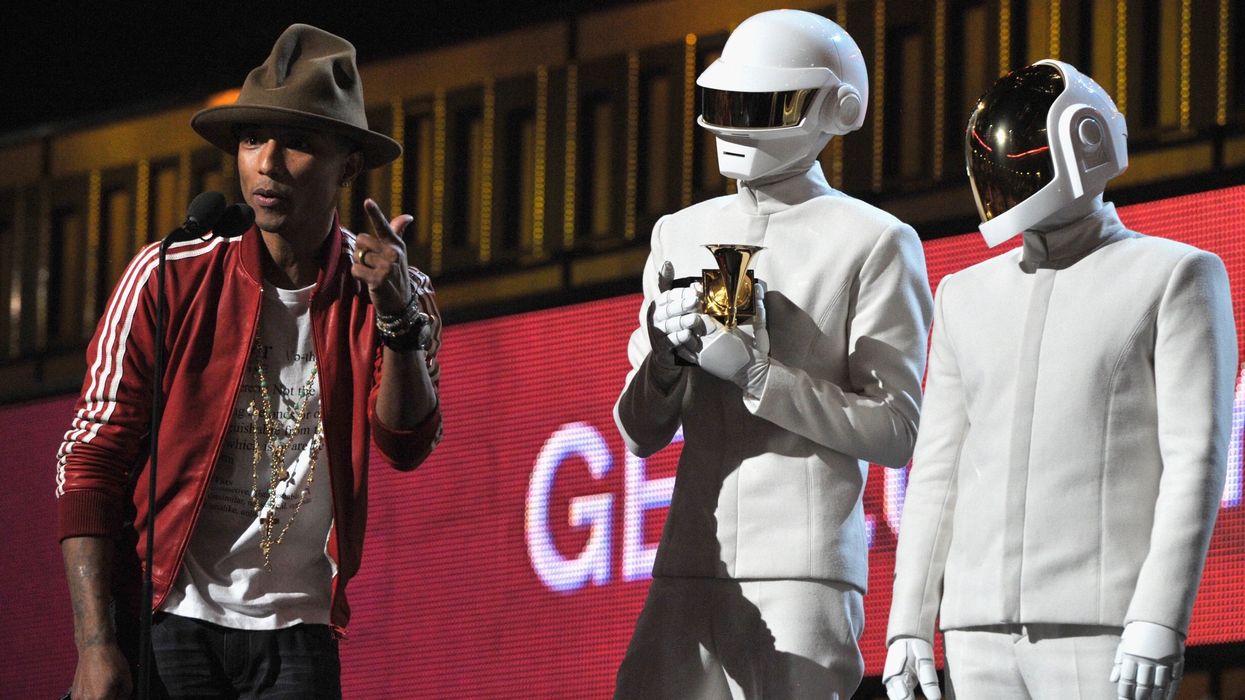Grammys Allow for Music Made With AI—But There’s a Catch
New rules allow for music made using AI to be awarded a Grammy. So what should filmmakers prepare for?

While the AMPTP, SAG-AFTRA, the WGA, and the DGA iron out how artificial intelligence will be used in the world of television and cinema, the Grammys went ahead and gave the tech the green light.
In June of 2023, new guidelines for winning a Grammy stipulated that music created with AI was allowed but still needed human authorship to be eligible in any category.
But creatives were still uncertain about what that honestly meant.
Clarifying the Issue
The Associated Press checked in with Recording Academy CEO and President Harvey Mason Jr. to shed some light on the issues.
“Here’s the super easy, headline statement: AI, or music that contains AI-created elements, is absolutely eligible for entry and for consideration for Grammy nomination. Period,” Mason said. “What’s not going to happen is we are not going to give a Grammy or Grammy nomination to the AI portion.”

So how would this be broken down? An example Mason gave referred to the songwriting and performance category.
“If a song was sung by an actual human in the studio, and they did all the performing, but AI wrote the lyric or the track, the song would not be eligible in a composition or a songwriting category,” Mason said.
The same would be valid for the performance category. If an AI voice model were used on the song, it would not be eligible for that award.
“As long as the human is contributing in a more than de minimis amount, which to us means a meaningful way, they are and will always be considered for a nomination or a win,” Mason elaborated. “We don’t want to see technology replace human creativity.”
Setting these ground rules is great for musical artists. Creatives now have boundaries they can work within to create their art. However, we’re still approaching this tech cautiously. There isn’t really a distinct boundary or meaning for what constitutes “a meaningful way.” There will always be folks who love to push the boundaries. In the end, it’ll still be left up to the human element to police AI works in the awards space.
But what about AI music for filmmakers? What options may we get?
Options for Filmmakers
As of this article, it’s still unclear what will happen with the SAG-AFTRA negotiations. The DGA, however, has already ratified its contract, and the WGA is still holding the line with no clear answer to the AI question in sight.
So what could writers potentially agree to? Let’s look at some examples:
- AI isn’t regulated, and it’s the wild west all over again. Nothing is sacred, and everything is permitted. This would shake things up and put creatives in a weird situation since there wouldn’t be any incentive for the medium to grow or evolve. Unfortunately, this is currently where the WGA and AMPTPT sit.
- AI is outlawed entirely, and we’re kind of back to business as usual. No writers or studios could use AI to generate written pages. Policing this would, unfortunately, be impossible as even the best AI-checking software is more hit than miss at this current stage.
- The Goldilocks solution. Writers can utilize AI to do whatever they want with their material, but studios aren’t allowed to cut writers out of the creative process and generate material for production or for writers to rewrite.
From where we stand as film industry creatives, there isn’t any way to go but forward. AI writing generators are here to stay, at least for now. How we allow them to be used will set the foundation for the future.
But one thing is clear. The creative aspect of our medium has to remain in the hands of human creators. From my (somewhat in-depth) understanding of how AI language models work, whatever prose or screenplay is created from the use of AI will never evolve the medium or push the boundaries of creativity.

Someday that may change. But it could also mean meeting someone in a leather trench coat with sunglasses at night, offering you a choice between a red pill or a blue pill.
Let us know what you think! How would you want AI to be regulated in the film industry? Sound off in the comments!
Source: Associated Press











